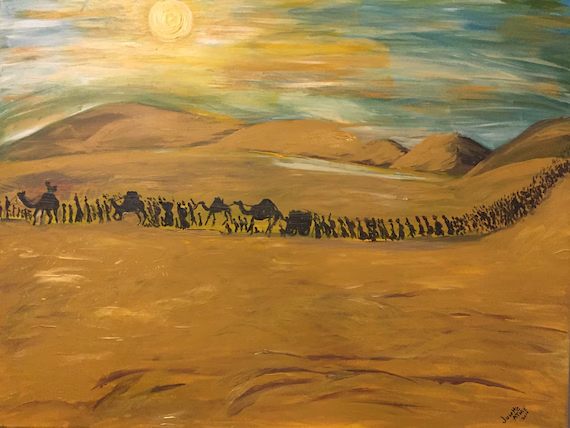The Prodigal Son
Jesus was talking to some people when a group of Pharisees joined the crowd.
They muttered to each other. 'Why does this man keep on talking and eating with people he knows have bad ways?
Jesus heard them and reminded them. 'When only one person is sorry for the wrong things he has done and wants to obey God, there is joy in Heaven.
Then he told them this story.
A rich farmer had two sons. One day, the younger son said. 'Father, half of everything you have will be mine one day. I want you to give it to me now.
The father was very upset by his son's demand, but he did as he was asked: he counted out and gave his son a great deal of his money.
A few days later, the son rode away to a distant city, taking the money with him. There he bought expensive clothes and jewels and a big house with lots of servants.
Night after night, he gave great feasts with delicious food and good wine for his new friends.
He thought he was having a wonderful time and enjoyed his expensive lifestyle. But soon he had spent all his money.
His new friends left him, and everything he had, even his fine clothes, was sold to pay his debts.
He wandered the city streets, dressed in rags, begging for something to eat. But there had been bad harvests and there was a shortage of food; no one had any to spare, and he had to go hungry.
'At last, he got work looking after a man's pigs in the fields. Sometimes he was so hungry, he was tempted to eat the pigs' food.
One day, when he was watching the pigs, he thought. My father's servants always have plenty to eat, while I'm nearly starving to death.
I'll go home and beg my father to forgive me for what I've done. I'm not worthy to be called his son anymore, but I'll ask him to let me be one of his servants.
After a long, weary journey, the son reached his home, tired, dirty and wearing rags. While he was still some way from the house, his father saw him coming.
He felt very sorry for his son, and ran to meet him. He threw his arms around his son and hugged him.
'Forgive me, father. I've been very foolish, said the son. 'I don't deserve to be your son anymore. Please let me be one of your servants.
The father took his son home. He told his servants to bring new clothes and shoes for his son. 'Tonight we'll have a feast; we'll eat and be merry.
I thought my son was dead, but he is alive. I thought he was lost, but he has been found.
Out in the fields, the elder son heard the sound of laughter, music and dancing. He walked back to the house, and asked one of the servants what it was all about.
'Your brother has come home.' replied the servant. Your father is giving a feast with music and dancing because he is so pleased to see his son again.
The elder son was very angry and refused to go into the house. His father came out and asked him to come in, I've worked hard for you all these years.
I've always done what you asked me, but you've never given me anything, not even a party for me and my friends, shouted the son.
But as soon as my brother comes home, having taken and wasted half your money, you order a great feast for him.
'My son, said the father. 'You are always with me and everything I have is yours. Please try to understand. I thought your brother was lost or dead.
Now I'm so happy and want to celebrate that he has come home, alive and well.."










Comments
Post a Comment